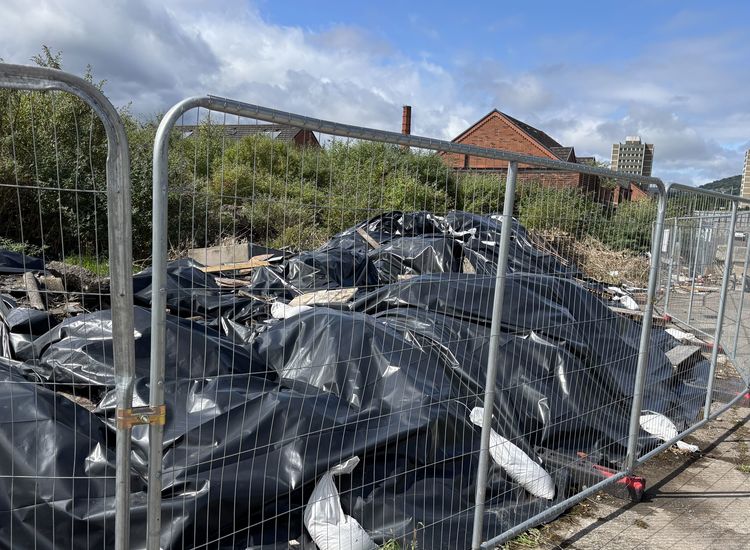The Ancient Order of Hibernians has stepped up its efforts to force the British government to set aside the proposed Northern Ireland legacy legislation.
According to a statement, last week, the Dáil's Good Friday Agreement Committee repeated the AOH's formal request for the Irish Attorney General to issue a legal opinion on whether there are grounds for Ireland to take an interstate case on the legislation to the European Court of Human Rights.
"This announcement came just days after the British House of Commons Human Rights committee found that the legislation would likely contravene the European Convention on Human Rights enshrined in the Good Friday Agreement," stated the AOH release.
"We're holding meetings in London, Dublin, and Washington; we're attempting to get everyone behind the campaign to have this bill stopped," said AOH National President Danny O'Connell.
Former Fine Gael TD, John Deasy, who handles government affairs for the AOH, met with the Northern Ireland Minister Lord Jonathan Caine in Westminster recently and was informed the bill, which is due for second reading in the House of Lords, will be delayed until mid-November.
"Opposition to the bill is growing, even within the British parliament. Ordinary members suspect the legislation is legally unsound, something that was confirmed by their own Human Rights committee last week," Mr. Deasy said.
On Thursday, October 27, Fergus O'Dowd, chairman of the Oireachtas Good Friday Agreement Committee, repeated the committee's request for the attorney general to issue an opinion on the matter. Senator Niall Blaney, a committee member, was reported as saying that he and other members of Fianna Fáil had pressed the taoiseach to secure advice from the attorney general about taking such a case.
Continued the AOH statement: "The AOH's campaign to organize and build broad opposition to the measure gained considerable momentum last week when the Taoiseach, Micheal Martin, stated that the planned British government legislation to end prosecutions and restrict inquests and civil claims is 'wrong.' He said London needed to give the issue 'very serious consideration' as it had the potential to undermine the Belfast Agreement."
And in Washington, D.C., the co-chair of the Congressional Friends of Ireland, Mike Kelly, issued probably the most direct warning to the British government about their plans to proceed with the measure.
On Monday, Congressman Kelly, a Republican said that political figures on both sides on Capitol Hill are hopeful that new British Prime Minister Rishi Sunak "will drop the legacy legislation altogether in the interests of continued good U.S.-UK relations."
Kelly continued: "While there may be a changing of the guard in the U.S. Congress come November, our united opposition will remain solid among my colleagues on both sides of the aisle."
Any attempt by the British government to curtail the investigation of crimes committed during the Troubles would be highly problematic."
Kelly, who was the keynote speaker at this year's AOH national convention in Pittsburgh, is a senior member of the U.S. House Ways and Means Committee.
The AOH statement said that President O'Connell believes Congressman Kelly's comments "will not go unnoticed by a British government still attempting to cut a deal on trade with political figures on Capitol Hill and the Administration."
O'Connell confirmed that his organization had again reached out to the fifty congressional cosponsors of House Resolution 888, passed unanimously by the U.S. House of Representatives in March and which opposed any statute of limitations or amnesty for crimes committed during the Troubles.
"We're making it clear to those members of Congress who put their name to our resolution that their efforts have made a difference and that we can stop this by acting together. This is something everyone in Irish America can get behind," O'Connell said.








